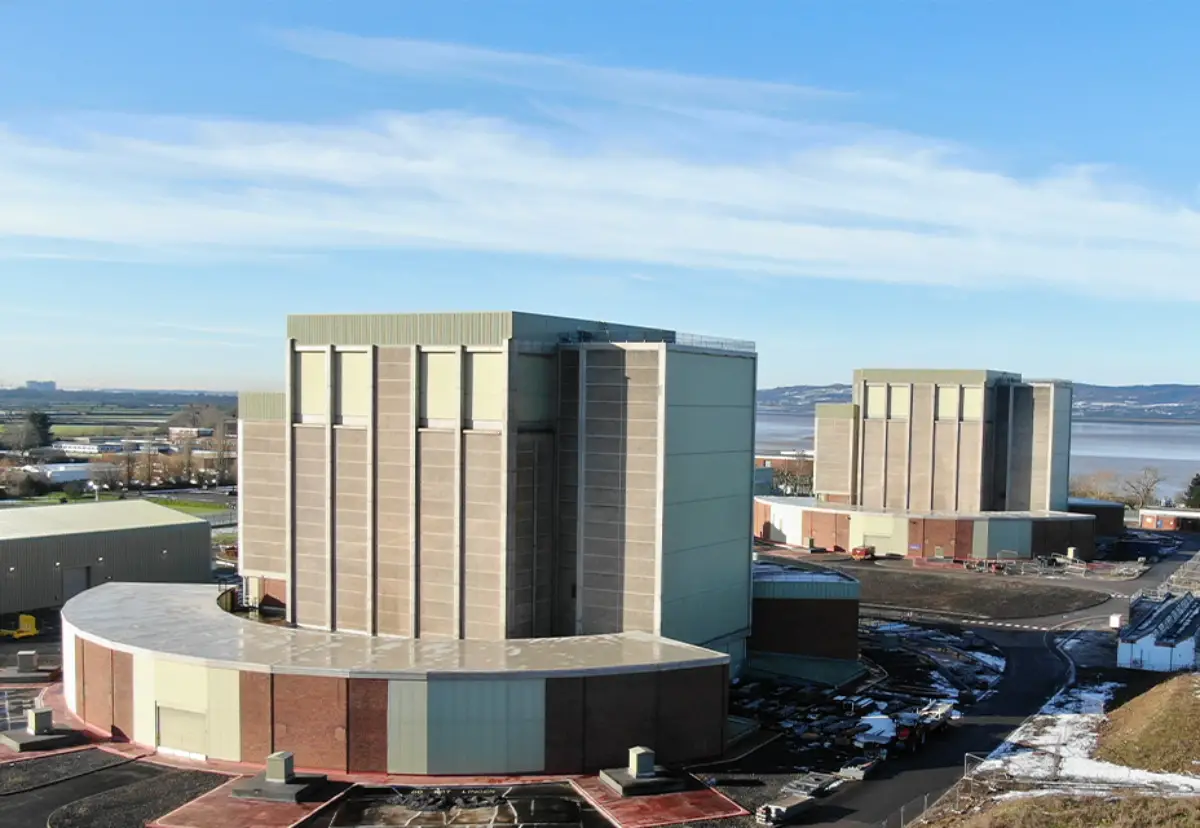Decommissioning efforts to clean up and demolish four “blower house” superstructures at Berkeley nuclear power station in Gloucestershire are set to begin. Altrad has been given a £30.8 million contract by Magnox to carry out the works.
As part of the contract, Altrad will design, remove asbestos, deplant, demolish, and build in and around the blower houses. Other Celadon alliance businesses will assist Altrad. These businesses will include Veolia KDC Decommissioning Services and NSG Environmental. OBR Construction, Mammoet, and Cavendish Nuclear are the others.
The project is one of the biggest decommissioning initiatives the Berkeley facility has seen in a while. Magnox’s director of program delivery, Ross McAllister, stated: “The decommissioning of the Berkeley nuclear power station was previously scheduled for the 2070s. However, it is wonderful to move it forward by five decades in our effort to carry out our duty better, faster, and even safer.”
“The blower houses circulated gas via the reactors. It would then channel heat into 310-tonne boilers to produce steam to turn the turbines and generate electricity. The final one of the 15 enormous metal boilers was shipped to Sweden for cleaning, smelting, and recycling in 2013.
Read Also: Plans for construction of New Dexcom manufacturing facility in Ireland
The decommissioning work at Berkeley nuclear power station in Gloucestershire
Before being destroyed, the structures will be completely cleaned of asbestos and any remaining low-level metallic waste before being destroyed. The project will take eight years to complete. Thus, it will be a significant step in the supply chain partners’ sustainable decommissioning of the Berkeley site.
General manager of Altrad for Magnox, Kevin Williamson, stated: “We are delighted to have secured this major decommissioning contract at Berkeley. It encompasses the retrieval and cleaning of the primary circuit ductwork. This is as well as miscellaneous steelwork from the blower houses prior to their demolition. It also includes processing the spring hangers from the lubrication pits, which need to be de-energized and made safe before they can be cleaned.”
The Nuclear Decommissioning Authority’s operational firm, Nuclear Waste Services (NWS), has been given a £13.7 million contract to manage 2,400 tonnes of metallic waste. A waste processing compound will also be established. Thus, the metallic trash can be processed there before leaving the site for treatment.
